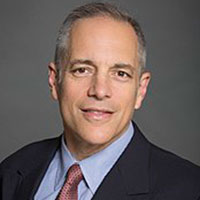
Elazer R. Edelman
Massachusetts Institute of Technology, MA
Dr. Edelman received Bachelor of Science degrees in Bioelectrical Engineering and in Applied Biology from MIT in 1978, a Master of Science degree in Electrical Engineering and Computer Sciences from MIT in 1979, a degree in medicine from Harvard Medical School in 1983 and a PhD in Medical Engineering and Medical Physics from MIT in 1984. He is the Edward J. Poitras Professor in Medical Engineering and Science at the Massachusetts Institute of Technology (MIT), Professor of Medicine at Harvard Medical School and at Brigham and Women's Hospital (BWH), and a practicing cardiologist at BWH. He is the director of MIT's Institute for Medical Engineering and Science (IMES), the Harvard-MIT Biomedical Engineering Center, and the MIT Clinical Research Center. Edelman has been elected to the American Academy of Arts and Sciences, National Academy of Inventors, National Academy of Engineering and the National Academy of Medicine.
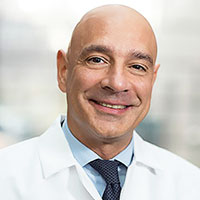
Zahi A. Fayad
Icahn School of Medicine at Mount Sinai, NY
Dr. Fayad serves as professor of Radiology and Medicine (Cardiology) at the Icahn School of Medicine at Mount Sinai and holds the Lucy G. Moses Professorship in Medical Imaging and Bioengineering. He is the founding Director of the BioMedical Engineering and Imaging Institute; Vice chair for Research, Department of Radiology at the Icahn School of Medicine at Mount Sinai. He has authored more than 580 peer-reviewed publications (h-index of 103), 50 book chapters, and over 500 meeting presentations. Dr. Fayad is the recipient of multiple prestigious awards.
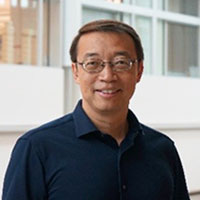
Chris Xu
Cornell University, NY
Professor Chris Xu is the founding co-director of Cornell Neurotech, and the director of Cornell NeuroNex Hub, an NSF funded center for developing and disseminating neurotechnology. Prior to Cornell, he was a member of technical staff at Bell Laboratories, and pioneered breakthrough development of fiber optic communication systems. He received his Ph.D. in Applied Physics from Cornell University, and contributed to the early development of 2-photon microscopy. His current research areas are biomedical imaging and fiber optics, with major thrusts in multiphoton microscopy for deep brain imaging, multiphoton microendoscopy for clinical applications, and fiber-based devices and systems for telecommunications and optical imaging. His research is supported by major grants from NIH, NSF, DARPA, and IARPA. Dr. Xu has chaired or served on numerous conference organization committees and NSF/NIH review panels. In addition to hundreds of journal and conference papers, he has 32 patents granted or pending. He has won the NSF CAREER award, Bell Labs team research award, the Tau Beta Pi Professor of the Year Award, and two teaching excellence awards from Cornell Engineering College. He received the 2017 Cornell Engineering Research Excellence Award. He is a fellow of the Optical Society of America, and a fellow of the National Academy of Inventors.
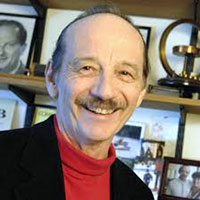
Temple F. Smith
Boston University, MA
Dr. Temple Smith obtained his PhD in Nuclear Physics from the University of Colorado in 1969, followed by an NIH (USA) postdoctoral fellowship under the direction of the mathematician, Stanislaw Ulam, and the molecular biologist, John R. Sadler. He is one of the founders of GenBank, initially at Los Alamos National Laboratory, and the co-developer, with Michael Waterman, of the Smith-Waterman sequence alignment algorithm. Beginning in 1988 he organized the “Genes and Machines” conference series in bioinformatics. As director of the Boston University BioMolecular Engineering Research Center, he directed the research of over twenty Post-doctoral and grad students. That research focused on protein evolution of the WD-repeat family; the Lifeguard apoptotic regulatory family; the evolutionary of the Drosophila clade, and the origin and evolutionary of the genetic translation system. He is a follow of the American Association for the Advancement of Science (AAAS), and a fellow of the ISCB. He has 200 plus reviewed scientific publications. In 2011 he was elected Emeritus Professor of BioMedical Engineering at Boston University. He is an avid skier, ice climber, sailor, hockey coach and family man. He is also the co-founder of a gene engineering company, Modular Genetics.
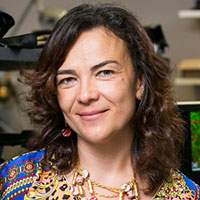
Irene Georgakoudi
Tufts University, MA
Irene Georgakoudi has been working on the use of lasers for therapeutic and diagnostic applications since her undergraduate years. She started as a physicist at Dartmouth College and continued her graduate studies in biophysics at the University of Rochester. Her interests in spectroscopy and spectroscopic imaging using endogenous sources of contrast were founded during her postdoctoral years at the MIT Spectroscopy Lab. After working on the development of fluorescence-based in vivo flow cytometry while an instructor at the Wellman Laboratories for Photomedicine at Massachusetts General Hospital/Harvard Medical School, Georgakoudi joined Tufts in 2004. She is the author of several patents on the development and use of spectroscopy and imaging to characterize tissues or to detect specific populations of cells, and has published numerous peer-reviewed manuscripts, review articles, and book chapters on these topics. She is the recipient of a Claflin Distinguished Scholar, an NSF Career Award, and an American Cancer Society Research Scholar award. She has served on the Board of Directors of the Optical Society of America.
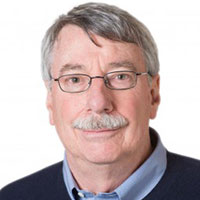
Stephen D Miller
Northwestern University, IL
Professor Stephen Miller is the Judy E. Gugenheim Research Professor of Microbiology-Immunology at Northwestern University Feinberg School of Medicine in Chicago. He received his Ph.D. in 1975 from the Pennsylvania State University and did postdoctoral training in cellular immunology at the University of Colorado Health Sciences Center before joining the faculty at Northwestern in 1981 where he currently serves as Director of the Northwestern University Interdepartmental Immunobiology Center. Dr. Miller has published more than 481 research papers, serves on the editorial boards of multiple journals, and is internationally recognized for his research on pathogenesis and regulation of autoimmune diseases using antigen-specific tolerance and monocyte targeting strategies. The laboratory is interested in understanding the mechanisms underlying the pathogenesis and immunoregulation of T cell-mediated autoimmune diseases, allergic disease, and rejection of tissue and organ transplants.
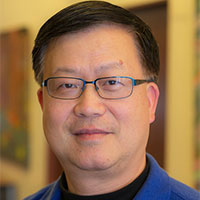
Zhongping Chen
University of California, CA
Prof. Zhongping Chen is a Professor of Biomedical Engineering and Director of the OCT Laboratory at the University of California, Irvine. He is a Co-founder and Chairman of OCT Medical Imaging Inc. Dr. Chen received his Ph.D. degree in Applied Physics from Cornell University in 1993. Dr. Chen’s research group has pioneered the development of functional optical coherence tomography (OCT), including Doppler OCT, phase resolved OCT, and optical coherence elastography. He is a Fellow of the American Institute of Medical and Biological Engineering (AIMBE), a Fellow of SPIE, and a Fellow of the Optical Society of America.
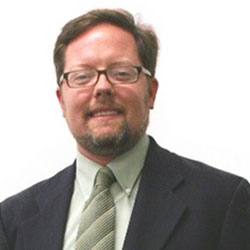
Thomas J. Webster
Northeastern University, MA
Thomas J. Webster’s (H index: 88) was appointed as Department Chair of Chemical Engineering at Northeastern University in 2012 in which the Department broke the record for the fastest increase in U.S. News and World Report ranking over a five-year period. Prof. Webster has graduated/supervised over 189 visiting faculty, clinical fellows, post-doctoral students, and thesis completing B.S., M.S., and Ph.D. students. To date, his lab group has generated over 13 textbooks, 68 book chapters, 276 invited presentations, at least 583 peer-reviewed literature articles and/or conference proceedings, at least 867 conference presentations, and 42 provisional or full patents. Prof. Webster currently directs or co-directs several centers in the area of biomaterials: The Center for Natural and Tropical Biomaterials (Medellin, Colombia), The Center for Pico and Nanomedicine (Wenzhou China), and The International Materials Research Center (Soochow, China). Prof. Webster has received numerous honors from difference societies. He also served as the President of the U.S. Society for Biomaterials. He has appeared on BBC, NBC, ABC, Fox News, the Weather Channel, the Discovery Channel, and the recent special ‘Year Million’ TV series on National Geographic talking about the future of medicine and science.
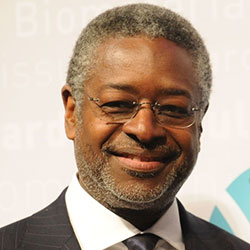
Anthony Guiseppi-Elie
Houston Methodist Research Institute and Texas A&M University, TX
Dr. Anthony Guiseppi-Elie is Professor of Biomedical Engineering and TEES Research Professor of Engineering at Texas A&M University (TAMU) where he directs the Bioelectronics, Biosensors and Biochips (C3B) Laboratories and is a member of the joint EnMed Faculty Working Group. He is Founder, President and Scientific Director of ABTECH Scientific, Inc., a near-patient biomedical diagnostics company. He holds the Sc.D. in Materials Science and Engineering from MIT, the M.Sc. in Chemical Engineering from the University of Manchester Institute of Science and Technology (UMIST) and the B.Sc. (First Class Honors) with majors in Analytical Chemistry, Biochemistry and Applied Chemistry from the University of the West Indies (UWI). Dr. Guiseppi’s research interests are in engineered bioanalytical microsystems in the service of human health and medicine.
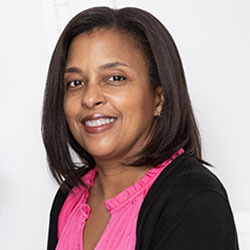
Treena Livingston Arinzeh, PhD
New Jersey Institute of Technology, NJ
Treena Livingston Arinzeh, PhD is a Distinguished Professor of Biomedical Engineering and the Director of the Laboratory for Tissue Engineering and Applied Biomaterials at the New Jersey Institute of Technology (NJIT). Dr. Arinzeh received her B.S. from Rutgers University in Mechanical Engineering, her M.S.E. in Biomedical Engineering from Johns Hopkins University, and her Ph.D. in Bioengineering from the University of Pennsylvania. She worked for several years as a project manager at a stem cell technology company, Osiris Therapeutics, Inc. Dr. Arinzeh joined the faculty of NJIT as one of the founding faculty members of the department of Biomedical Engineering and served as interim chairperson and graduate director. Dr. Arinzeh has been recognized with numerous awards, including the National Science Foundation (NSF) CAREER Award and the Presidential Early Career Award for Scientists and Engineers (PECASE). She is a fellow of the American Institute for Medical and Biological Engineering (AIMBE) and the Biomedical Engineering Society (BMES). She recently served as the chairperson for the National Institutes of Health (NIH) Musculoskeletal Tissue Engineering (MTE) Study Section. She is currently a co-PI and the Director of Diversity of the NSF Science and Technology Center on Engineering Mechanobiology.
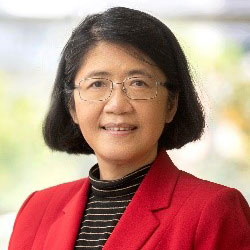
May Dongmei Wang
Georgia Institute of Technology and Emory University, GA
Dr. May Dongmei Wang is a full professor in the Departments of Biomedical Eng. and Electrical and Computer Eng. at Georgia Institute of Technology and Emory University. She is the Director of Biomedical Big Data Initiative, a Kavli Fellow, a Georgia Cancer Coalition Distinguished Scholar, a Carol Ann and David D. Flanagan Faculty Fellow, a Petit Institute Faculty Fellow, an AIMBE Fellow, and an IAMBE Fellow. She earned BEng from Tsinghua University China, and MS/PhD from Georgia Institute of Technology. Her research is in Biomedical Big Data Analytics with a focus on Biomedical and Health Informatics (BHI) for predictive, personalized, and precision health (pHealth). In FDA-organized MAQC international consortium, she led the comprehensive RNA-Seq analytics pipeline investigation. Dr. Wang published over 250 peer-reviewed articles in referred journals and conference proceedings with google scholar citations class to 12,000. She delivered more than 220 invited and keynote lectures. She is a recipient of Georgia Tech Outstanding Faculty Mentor Award for Undergraduate Research and a MilliPub Award (for a high-impact paper that has been cited over 1,000 times) from Emory University.
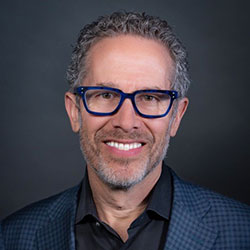
Scott P. Bruder
Bruder Consulting & Venture Group, LLC, NY
Dr. Bruder is the Founder and CEO of the Bruder Consulting & Venture Group, providing product development, regulatory, compliance and commercialization support for companies and investors focused on tissue repair and regeneration. He is the former CMSO of Stryker and held other C-Suite roles at BD and J&J prior to that. Over the last 25 years, he has launched dozens of products, published over 125 papers, abstracts and chapters, received numerous awards and has been elected to the National Academy of Inventors. Dr. Bruder maintains his academic ties as an Adjunct Professor of Orthopaedic Surgery and Biomedical Engineering at CWRU.